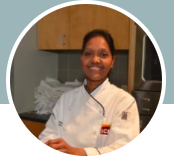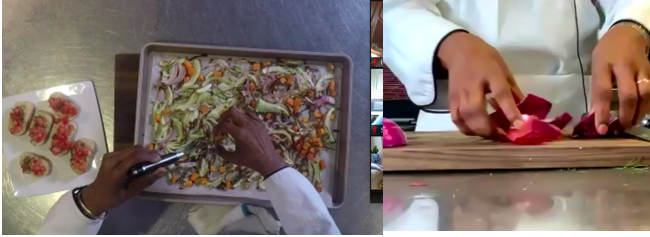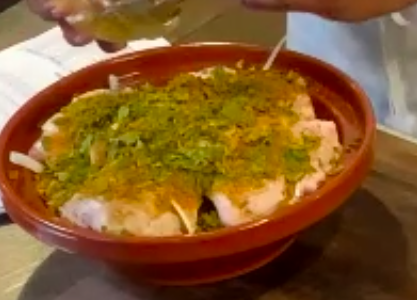Making the Most of the Lockdown: Remote Recreational Cooking at the Institute of Culinary Education
By Chef David
Zoom cooking, whether as a class or a fun activity is a pandemic-induced craze that has spread as all of us hunker down and rediscover our kitchens. Small wonder that the largest hands-on recreational cooking program in the world, the New York-based Institute of Culinary Education (ICE) has provided 1,500 classes to more than 26,000 students and is currently offering its recreational cooking program on a virtual platform to a global audience.
 Virtual cooking classes offer a wealth of opportunities, especially for the kosher community. From the safety of our kitchens, where we provide the ingredients and utensils, we can step into the secular world of not-necessarily-kosher cooking and learn new skills.
Virtual cooking classes offer a wealth of opportunities, especially for the kosher community. From the safety of our kitchens, where we provide the ingredients and utensils, we can step into the secular world of not-necessarily-kosher cooking and learn new skills.I find myself forever scouring the internet for new flavors and interesting recipes, and then testing, tasting, and modifying. Online cooking classes offer interactive learning led by a chef who provides advice and guidance in a show-and-tell format designed for adults. The result is often instructive and entertaining.
As ICE clearly knows, there is an art to leading an effective interactive cooking class. No one ever said it is easy to maintain a remote classes’ attention so that students can complete the recipes correctly without being physically in front of the teacher. Instructors must maintain a positive encouraging attitude which establishes rapport with the students.
ICE Recreational Classes provide a high-level of education coupled with class interaction. Many other classes are pre-recorded, while those at ICE are interactive because they are real-time.
Moroccan Food and Knife Skills
To get a clear understanding of the instructional style of ICE’s recreational cooking, I selected two very different beginner classes: The first, enticingly titled “A Taste of Morocco” which included preparing Chicken Tagine, Carrot Salad and Couscous; and the second was a skills class “Knife Skills 101.”
The Moroccan menu required substitutions to become kosher. To make the couscous, I replaced butter with oil. It might have changed the flavor somewhat, but I was able to cook along with the group.
Each class was supposed to last 90 minutes, but one ended early and the other ran over. For both classes the instructor provided easy listening, simple instructions, and, most important, impeccable recipes.
Both of my classes were led by Chef Sue (Sooninah Gonsalves), a regular instructor at ICE, where she earned her Culinary Arts and Pastry and Baking Arts Diplomas. Maintaining an easy conversational style with the students she shared helpful hints, such as how to peel a garlic clove, she exuded charm, and her calm manner guided participants through the preparation and instructional segments.

Chef Sue
She didn’t miss a step even when things did not progress as planned. And when something went wrong with the tagine, the traditional Moroccan cookware with a chimney-top that allows stews to slow-cook until tender, she simply transferred everything to another pot.
“Funstruction”
ICE understands that a good recreational cooking class must be designed to be “funstruction.” At ICE, the mood is light even when Chef Sue was reinforcing the fundamentals of good cooking skills.
In the “Taste of Morocco” class, Chef Sue covered not only how to add the ingredients, but also basic knife techniques, which included learning where to place fingers when chopping or preparing garlic and the importance of keeping cutting boards clean.
In the Knife Skills class, she went into far more detail, focusing on safety and tips, such as how to cut an onion without crying and how to maintain your knives, while preparing a light meal.

Knife skills class
Participating without the Video
Participants in an ICE class can either cook in parallel with the group, which allows for feedback or corrections, or they can cook at their own pace.
For some, an ICE Zoom class is a social event. They can be seen chatting about their experiences or sharing the session with family members. But, there is no requirement to be on camera or actively participate. What made ICE’s online cooking class different from others was the teacher. During the Knife Skills class, for example, she asked those of us who were willing to adjust our cameras allowing her to watch our techniques.
Chef Sue’s attention made the class special, she was encouraging offering guidance and tips.

Chicken tangine
Almost Perfect
This is not to say that everything was perfect. All online cooking classes come with Zoom links and documents listing ingredients (shopping list), equipment, and recipes. ICE offers different emails. Some share ingredients, and others provide the recipes themselves.
If the class had better or, perhaps, more cameras, the sessions might feel more intimate. Some virtual cooking classes place the camera such that participants feel as if they are literally looking over the chef’s shoulder. Others use multiple cameras—one usually placed overhead and the second facing the chef—giving the participants a better view.
It would also be nice if ICE recorded each session, allowing participants to review and even recreate the class when necessary.
Patience and Flexibility
ICE is a good remote cooking class for those with little or no prior cooking experience. Chef Sue provided detailed instructions, often stopping to answer participants’ questions patiently while guiding them along the way. Her flexibility was apparent when she offered advice on a technique that had come up in a different class. Her engaging, friendly manner made her classes gastronomic adventures of new cuisine for novice students and a refresher for more advanced chefs as well as a great way to expand ones’ cooking repertoire.
Classes at ICE are $50 each, a good value considering that participants receive the institute’s strengths: entertainment, instruction, and engagement leading to delicious meals. At the end of the 90-minute “Taste of Morocco,” every student had completed Chicken Tagine and Couscous, and everyone’s dish looked as delicious as Chef Sue’s did.
For information about Recreational Classes at ICE (800) 522-4610 or rec@ice.edu
ICE’s Recreation Classes are great introductions for beginning chefs who started cooking seriously during the lockdown. They provide an entertaining way to absorb the instruction needed in order to take skills to the next level while learning to use equipment properly. Experienced chefs should consider taking one of the institute’s advanced or intermediate classes.





